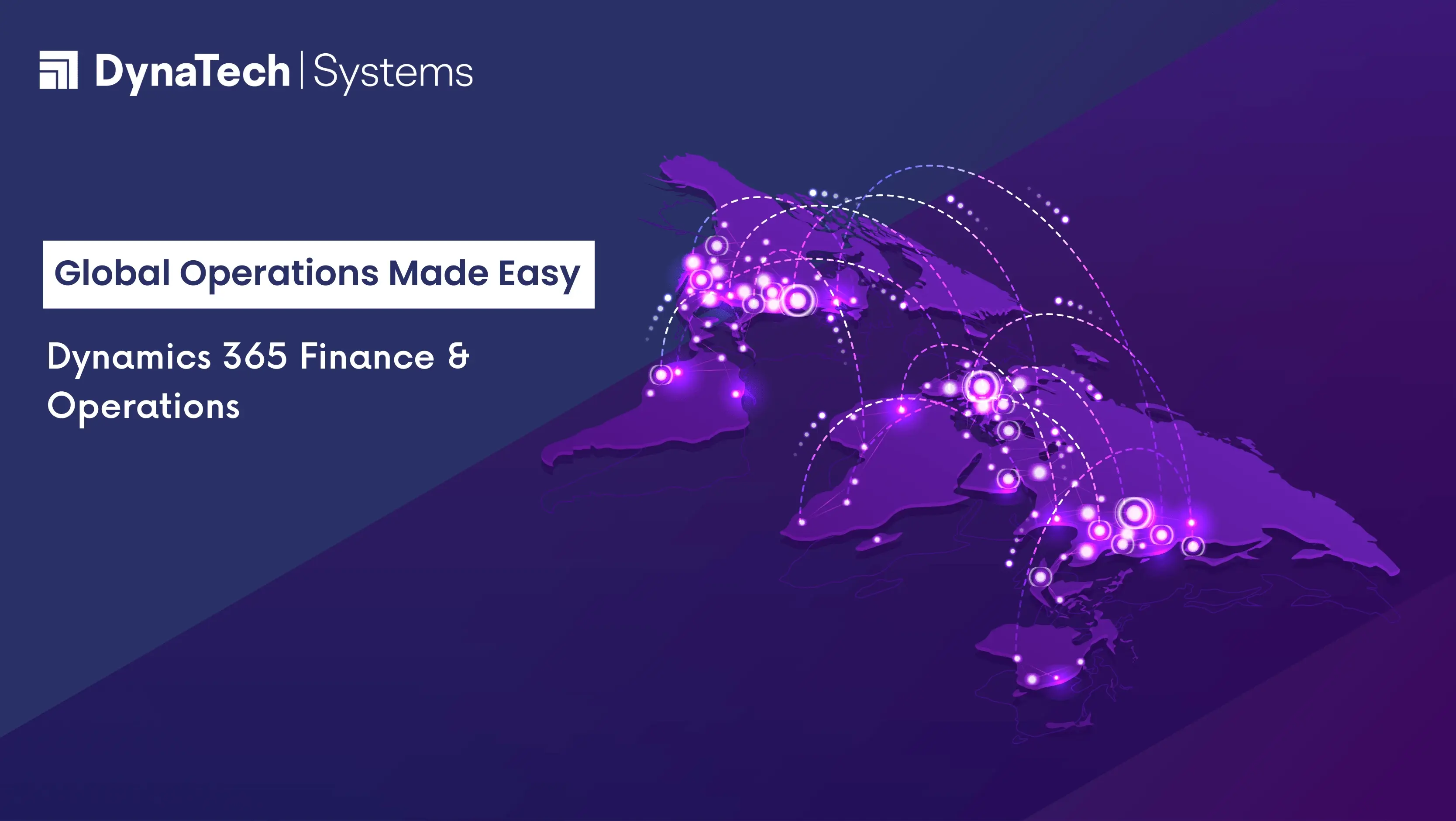Everyone looks forward to expanding their business globally and reaching customers in different regions. However, this also comes with several responsibilities and challenges, which include currency, tax regulations, languages, and even compliance requirements. Now, the main question arises how would they handle all these things?
To solve these complexities or problems, many businesses or organizations have started using advanced ERP solutions, including Dynamics 365 Finance and Operation, to meet the region’s local regulations and customer expectations.
One of the main goals of ERP solutions is to meet the region’s specific regulatory, legal, and cultural requirements. In this guide, you will explore how Dynamics 365 Finance and Operations helps manage global operations with localization.
About Localization in Dynamics 365 Finance and Operation
Do you know what localization in Dynamic 365 is? Localization is the process through which you can customize an ERP system to work with the laws, regulations, and business practices of that particular business in a region or country. It entails implementing local languages, currencies, and tax regulations and customizing financial, operational, and reporting features.
There is no doubt that localization is essential for every organization with a global presence as it ensures adherence to local laws and regulations, improves user experience and lowers operational risks.
When you use Dynamics 365 finance and operation, then that will offer you several localization features, which include:
– This system will provide multiple languages, allowing the users to work in the language they prefer, enhancing productivity and usability.
– While working across the world, an organization does have to deal with different currencies, and with the help of this system, an organization can also easily handle different currencies automatically. All an organization needs to do is apply for the appropriate exchange rate and comply with local regulations.
– The solution also provides integrated regulatory reporting features that may be customized to meet local standards, easing compliance procedures.
– Dynamic 365 Finance and Operation also offer country-specific tax regulations, enabling them to accurately calculate the tax and report.
– The system gives users access to a marketplace of country-specific localization extensions created by Microsoft and other third parties.
Features of Localization in Dynamics 365 Finance and Operations
1. Offer Multi-lingual Support
One of the best features that Dynamic 365 Finance and Operations offer is that the users can communicate with the system in the language they are comfortable in. With the help of this functionality, businesses may accommodate users from different geographical areas and foster fluid communication among their worldwide workforce.
2. Country-Specific Tax Configuration
When it comes to the laws and regulations of tax, every country has its own; they are different. Dynamics 365 Finance and Operation will offer extensive capabilities to manage taxes and enable companies to set up country-specific tax laws, rates, and calculations. This guarantees proper tax compliance and lowers the possibility of fines or penalties.
3. Global Charts of Accounts
Financial reporting and analysis are built on a global chart of accounts. Organizations can create a single chart of accounts that fulfills regional statutory reporting requirements using Dynamics 365 Finance and Operations. With the help of this function, consolidated financial statements are still compliant with national accounting rules.
4. Localized Financial Reporting
Just like the tax laws and regulations, the rules for financial reporting differ from nation to nation. Businesses can produce localized financial statements that adhere to the unique reporting standards of each nation using Dynamics 365 Finance and Operations. The reporting procedure is streamlined by this feature, which guarantees the timely and accurate transmission of financial data.
Strategies for Localization in Dynamics 365 Finance and Operations Implementation
While implementing the localization in Dynamic 365 Finance and Operation, you will have to consider the following things:
1. Conducting Localization Evaluations
Organizations should carry out rigorous assessments to determine the localization needs of each nation or region before starting a global deployment. Assessing legal and regulatory frameworks, tax laws, reporting requirements, and other pertinent elements are part of this process, and these evaluations aid in creating a thorough localization strategy.
2. Recruiting Partners and Local Experts
When an organization adopts localization in Dynamics 365 Finance and Operations, it is essential to work with local professionals, including legal counsel, tax consultants, and implementation partners. These professionals ensure that the ERP system complies with the unique needs of each nation or region since they have in-depth knowledge of local laws, rules, and business practices.
3. Setting Localization Options
Dynamics 365 Finance and Operations offers various configuration choices to customize the system to meet regional needs. Organizations should define localization preferences for things like language, tax, and currency codes, as well as financial reporting formats. Each country’s settings can be altered to facilitate efficient operations and precise financial management.
4. Adoption of Training and Users
If you want to Implement localization successfully, it requires appropriate training and user adoption. Organizations should engage in thorough training programs to inform users about the regionally specific functions and procedures in Dynamics 365 Finance and Operations. By doing so, users can use the system without facing any problems.
Perks of Localization in Dynamics 365 Finance and Operations for Managing Global Operations
Once you have implemented the localization in Dynamics 365 Finance and Operation, that will help you in many ways and manage the global operations. Some of the great benefits which you can experience are:
1. Enhance the Operational Efficiency
Dynamics 365 Finance and Operations’ localization tools automate procedures, including currency conversion, tax calculations, and regulatory reporting. When you use this, then that will lessen the need for manual labor, decrease human error and also improve the operational effectiveness of activities all over the world.
2. Improve Compliance and Manage Risk
When you work outside the country, then there is always a risk. Organizations can assure compliance and reduce risks connected with international operations by coordinating with country-specific reporting requirements and legislation with this system. The localization features of Dynamics 365 Finance and Operations assist firms in staying current with evolving regulatory standards, lowering the risk of fines or other legal problems.
3. Better Decision-making
Dynamics 365 Finance and Operations gives enterprises a consolidated picture of all worldwide operations and provides real-time insights into performance metrics, financial data, and key performance indicators. The system enables decision-makers to make well-informed decisions, spot growth opportunities, and streamline processes globally.
4. Flexibility and Scalability
A scalable solution, Dynamics 365 Finance, and Operations adjusts to the changing requirements of expanding enterprises. The system is flexible enough to support additional locations, currencies, and languages, allowing global operations to grow into new markets or acquire subsidiaries.
Conclusion
An organization can use Dynamic 365 Finance and Operation to manage global operations as it is a comprehensive and efficient method to operate worldwide. It provides robust localization features that speed up operations, guarantee adherence to local laws, and assist corporate expansion across borders.
To supercharge your Global Operations, contact us at sales@dynatechconsultancy.com and get a 16-Hours Free Consultation!




























